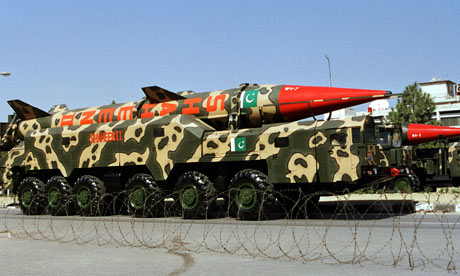- Views: 2K
- Replies: 27

Lt. Gen. (Retd) Khalid Kidwai, former Advisor to Pakistan’s National Command Authority, has provided insights into Pakistan’s nuclear strategy, emphasizing its comprehensive approach to deterrence. In his remarks, he highlights Pakistan’s readiness to employ various targeting strategies and its possession of a diverse range of nuclear weapons.
Kidwai asserts that Pakistan’s nuclear strategy extends beyond conventional notions of deterrence. Notably, he emphasizes the adoption of both Counter Value (CV) and Counter City’s (CC) targeting strategies. This approach underscores Pakistan’s intent to target not only strategic assets but also urban centers within India, thereby amplifying the deterrent effect.
Moreover, Kidwai underscores Pakistan’s freedom to select targets from a wide spectrum, including counter value, counter force, and battlefield targets. Despite India’s advancements in Ballistic Missile Defense (BMD) and acquisition of systems like the Russian S-400, Pakistan maintains confidence in its ability to penetrate Indian defenses and effectively target key assets.
Pakistan’s nuclear arsenal is described as multi-faceted, comprising strategic, operational, and tactical weapons. This diversity allows for comprehensive coverage of Indian territory, leaving no sanctuary for potential adversaries. Kidwai suggests that Pakistan’s nuclear capabilities encompass a broad range of yields, measured in kilotons (KT), ensuring a robust deterrent posture against India’s policy of massive retaliation.
By possessing a spectrum of nuclear weapons and targeting strategies, Pakistan aims to deter India effectively. Kidwai argues that Pakistan’s doctrine of ‘counter-massive retaliation’ ensures a credible response to any aggressive action from India, potentially escalating the conflict to severe levels.
